Filter by
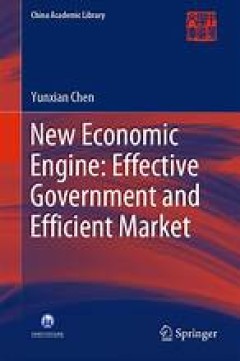
New Economic Engine: Effective Government and Efficient Market
This book contains at least three main highlights: breaking through the limitations of the mainstream Western economics system and the market theory framework, correctly explaining the successful experience of China’s reform and opening up over the past 40 years from an economic perspective, and developing a new economics system and market theory. China’s reform and opening up and innovativ…
- Edition
- 1
- ISBN/ISSN
- 978-981-15-2922-1
- Collation
- Economic
- Series Title
- -
- Call Number
- 338.1
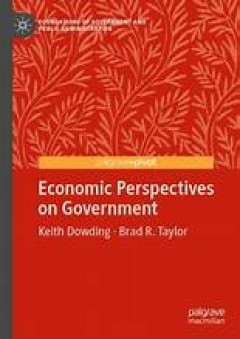
Economic Perspectives on Government
“Dowding and Taylor offer student and scholar alike a clear and compelling perspective on the foundations of political economy. Their narrative coherently frames the scholarship of the last half century, and persuasively applies it to the recurring problems facing groups, markets, and whole societies.” —Kenneth A. Shepsle, Harvard University, USA This book introduces and applies t…
- Edition
- 1
- ISBN/ISSN
- 978-3-030-19707-0
- Collation
- Political Economy
- Series Title
- -
- Call Number
- 354

Biopolitics and Utopia
This interdisciplinary reader offers a fascinating exploration of the intersection of biopolitics and utopia by employing a range of theoretical approaches. Each essay provides a unique application of the two concepts to topics spanning the social sciences and humanities.
- Edition
- 1
- ISBN/ISSN
- 978-1-137-51475-2
- Collation
- politik
- Series Title
- -
- Call Number
- 324
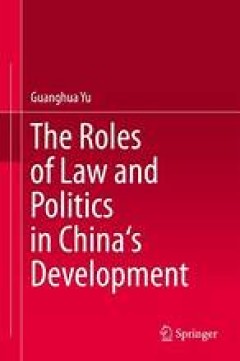
The Roles of Law and Politics in China's Development
This book examines China’s economic development from the end of 1970s, integrating perspectives from law, economics and political science. Particular attention is given to the role of formal law and political changes in China’s development, presenting the argument that formal law has made a useful contribution to China’s economic development.
- Edition
- 1
- ISBN/ISSN
- 978-981-287-002-5
- Collation
- Business Management
- Series Title
- -
- Call Number
- 650
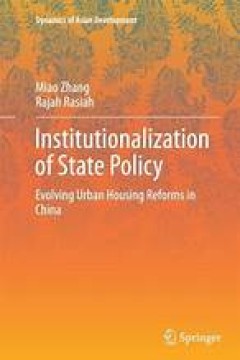
Institutionalization of State Policy
Using fresh evidence and a novel methodological framework, this book sheds light on how institutions have driven economic reform in China's urban housing sector. The book systematically analyzes the developmental role of the state in China, with rich empirical evidence to show how decentralization has brought about significant participation by the different levels of government with the central…
- Edition
- 1
- ISBN/ISSN
- 978-981-287-570-9
- Collation
- politik
- Series Title
- -
- Call Number
- 324

Proceedings of 2015 2nd International Conference on Industrial Economics Syst…
This book collects high-quality papers on the latest fundamental advances in the state of the art and practice of industrial economics study and industrial security engineering, providing insights that address problems concerning the national economy, social development and economic security. The book is divided into major sections including Industrial Economics; Industrial Security; Empirical …
- Edition
- 1
- ISBN/ISSN
- 978-981-287-655-3
- Collation
- Ekonomi
- Series Title
- -
- Call Number
- 330

Idiotism : Capitalism And The Privatisation Of Life
Idiotism examines society in late capitalism where the market logic of neoliberalism has become the new ‘common sense’. Using the Greek word idios, meaning 'private', Neal Curtis calls this privatisation of the world ‘idiotism’. Through constructing a new vocabulary with which to understand our society, Curtis examines 'idiotism' across the spheres of economics, politics and culture, dr…
- Edition
- -
- ISBN/ISSN
- 9780745331560
- Collation
- 184 halaman
- Series Title
- -
- Call Number
- 100 CUR i
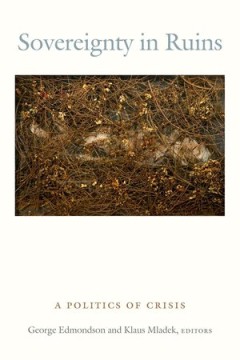
Sovereignty In Ruins : A Politics Of Crisis
Featuring essays by some of the most prominent names in contemporary political and cultural theory, Sovereignty in Ruins presents a form of critique grounded in the conviction that political thought is itself an agent of crisis. Aiming to develop a political vocabulary capable of critiquing and transforming contemporary political frameworks, the contributors advance a politics of crisis that co…
- Edition
- -
- ISBN/ISSN
- 9781478091066
- Collation
- 360 halaman
- Series Title
- -
- Call Number
- 320 EDM s
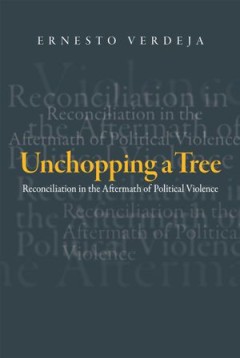
Unchopping a Tree : Reconciliation in the Aftermath of Political Violence
Political violence does not end with the last death. A common feature of mass murder has been the attempt at destroying any memory of victims, with the aim of eliminating them from history. Perpetrators seek not only to eliminate a perceived threat, but also to eradicate any possibility of alternate, competing social and national histories. In his timely and important book, Unchopping a Tree, E…
- Edition
- -
- ISBN/ISSN
- 9781439900543
- Collation
- 240 halaman
- Series Title
- Politics, History, and Social Change
- Call Number
- 320 VER u

Ausnahmezustand
In der Krise greift die Demokratie zum Ausnahmezustand – was das bedeutet, zeigen die Beiträge dieses Bandes. Die Ausweitung der Kompetenzen der Regierung verspricht eine effektive Krisenabwehr, sei es im Falle von terroristischen Anschlägen, Ausschreitungen, Übergriffen auf Polizeibehörden oder bei Naturkatastrophen. Dass damit eine teils erhebliche Einschränkung bürgerlicher Freiheits…
- Edition
- 1
- ISBN/ISSN
- 978-3-658-16588-8
- Collation
- Politi/Politics,
- Series Title
- Staat – Souveränität – Nation
- Call Number
- 324
 Computer Science, Information & General Works
Computer Science, Information & General Works  Philosophy & Psychology
Philosophy & Psychology  Religion
Religion  Social Sciences
Social Sciences  Language
Language  Pure Science
Pure Science  Applied Sciences
Applied Sciences  Art & Recreation
Art & Recreation  Literature
Literature  History & Geography
History & Geography